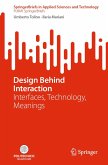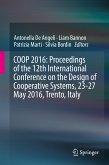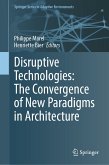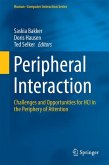This book explores speculation in design research in the field of human-computer interaction (HCI). The authors reveal how speculative reasoning in design research increases the capacity of HCI to address a wider array of social and research challenges. Speculation in design research employs (1) leaps of imagination, (2) diverse ways of knowing or epistemologies, (3) ethical reflexivity, (4) and makes alternate possibilities experiential. This book shows how each can be productively and critically applied together through existing, emerging, and new research approaches in HCI. The aim of this book is to generously see speculation as more than a form of critique or genre of design research, to instead be seen as broadly central to the material investigations that govern much of the field. In doing so, the book aims to expand the potential role of speculation in HCI and shows how speculation is applicable to a wide range of research goals, which, in turn, creates research approaches in new directions. In expanding the approach and methodology of speculation in HCI, the books draw inspiration from other disciplines and intersectional perspectives. By examining current, emerging, and possible new forms of speculation methods, this book will be of interest to undergraduate and graduate students in HCI as well as seasoned researchers and practitioners.
In addition, this book:
- Traces the emergence of speculative design, design fiction, and critical design and its impact on HCI
- Turns critical attention of speculation toward the present rather than future to create new empirical ways of knowing
- Outlines potential of centering speculation in HCI for greater flexibility in addressing diverse and urgent challenges
Dieser Download kann aus rechtlichen Gründen nur mit Rechnungsadresse in A, B, BG, CY, CZ, D, DK, EW, E, FIN, F, GR, HR, H, IRL, I, LT, L, LR, M, NL, PL, P, R, S, SLO, SK ausgeliefert werden.









